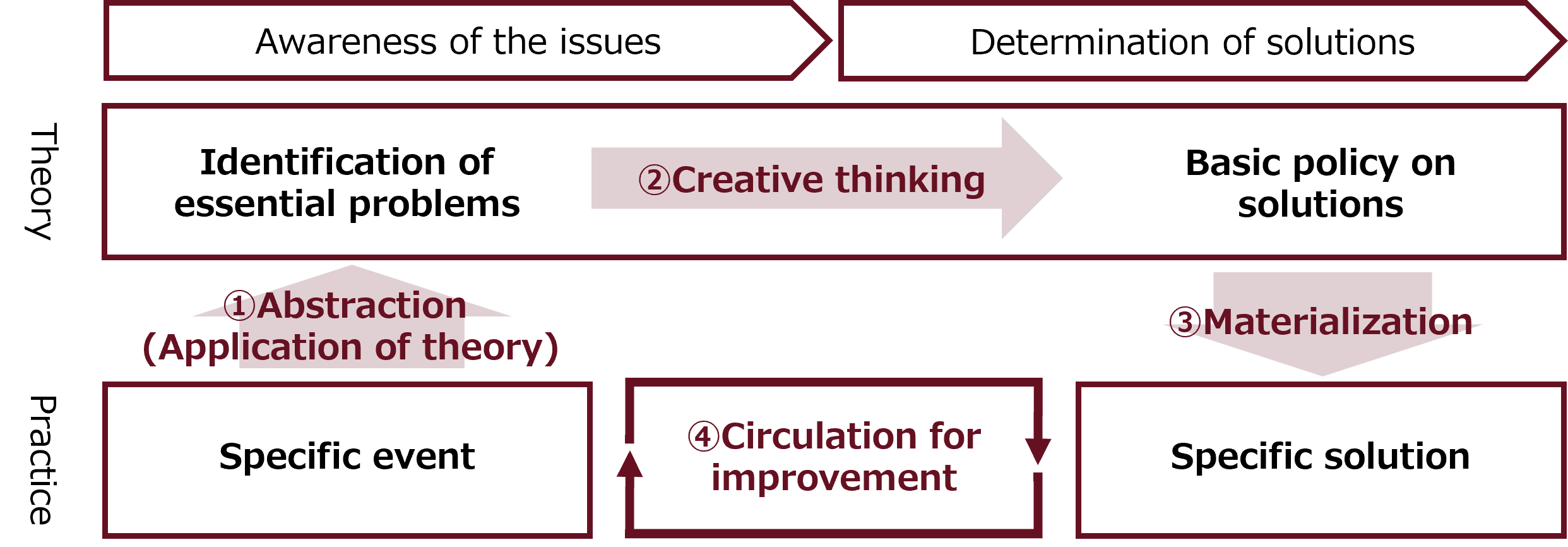CURRICULUM
1.CURRICULUM STRUCTURE
The Management Analysis Program offers a unique approach to mastery of business management. In addition to acquiring the fundamentals of business administration, accounting, marketing, and finance, our graduates are imbued with high-level analytical skills and in-depth insights into business phenomena.
- 1.LECTURES(CORE COURSES AND ELECTIVE COURSES)
- Through the basic core courses and more advanced elective courses, students not only acquire specialist knowledge in business management, but also the indispensable deep insight and broad conceptualization skills needed for advanced management decision making. In addition, to enhance our graduates' abilities to engage with the international business community, English Communication is a compulsory subject.
- 2.SEMINARS(First year: Introductory and Basic Workshops; Second year: Workshop)
- Workshops are conducted in small groups and provide an opportunity for in-depth learning through intensive dialogue with teachers and group members.

*Extra-curricular Activities : Domestic / Overseas Learning Tours, Business Contests by 3rd parties, etc.
(Please find more information in the blog)
Only available in Japanese
2. DIALOGUE BETWEEN THEORY AND PRACTICE
The HUB-SBA emphasizes a 'dialogue between theory and practice,' wherein the wealth of theoretical insight gleaned from lectures can inform real-world business practice. Such applications of theory may be expedient and unproblematic, however, in other cases, the application can be more challenging. At such times, the interaction between theory and real-world practice provides insights that can lead to a reconsideration of the theory and the appropriateness of its application. In this way, theory and practice are in dialogue and each is instrumental in the development of the other.

Only available in Japanese